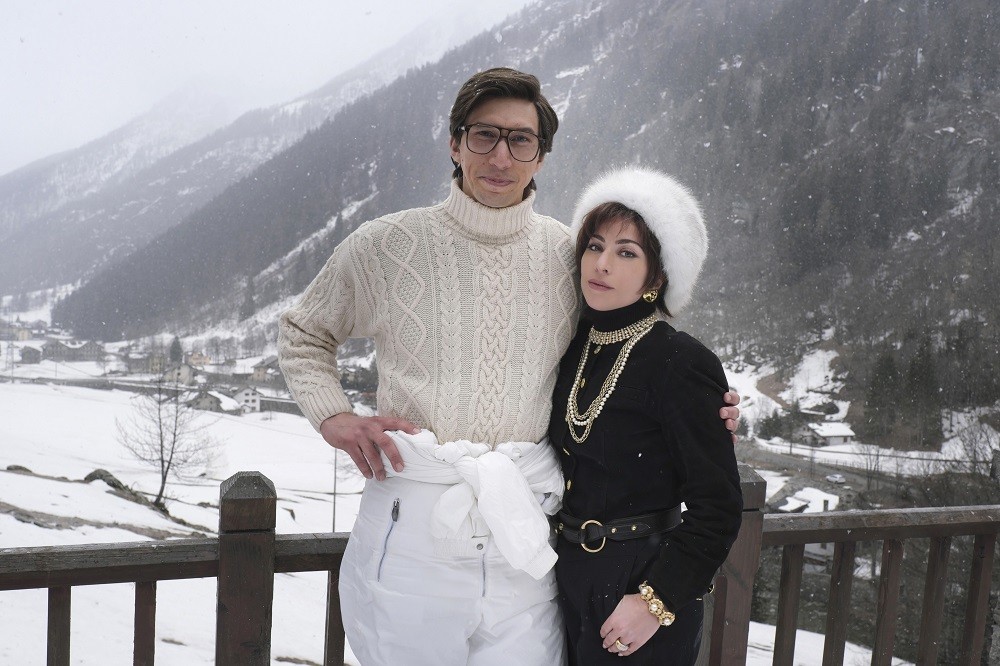House of Gucci

Adam Driver and Lady Gaga star in HOUSE OF GUCCI. (Photo: United Artists)
While fashionistas and devotees of the namesake brand might gravitate toward House of Gucci like a new product line, outsiders will find the opulence doesn’t justify the investment.
This wildly uneven expose of the iconic fashion family from acclaimed director Ridley Scott stylishly navigates a scandalous maze of greed, obsession, power, and betrayal — did we mention greed? — yet winds up almost as shallow and superficial as its characters.
The story spans more than two decades, beginning with the 1970s opposites-attract courtship of Italian fashion scion Maurizio Gucci (Adam Driver) and blue-collar accountant Patrizia (Lady Gaga).
When Maurizio inherits control of the company from his ailing father (Jeremy Irons), Patrizia comes along for the ride. After they marry, she enjoys the influence and affluent lifestyle, and gains more control. That sets off a power struggle of sorts involving Maurizio’s irrepressible uncle (Al Pacino) and his dimwitted cousin (Jared Leto).
Years later, the family turbulence spills into the business, which suffers under Maurizio’s control. Meanwhile, Patrizia’s suspicions of infidelity have her seeking revenge as she’s cut out of the loop. As their relationship turns chillier than the weather outside their Swiss ski chalet, it seems destined for a tragic outcome.
Scott playfully satirizes extravagance and excess through a visually striking combination of amber-hued nostalgia and lavish period glitz, aided by longtime collaborators such as Polish cinematographer Dariusz Wolski and costume designer Janty Yates.
In the follow-up to her Oscar-winning turn in A Star Is Born, Lady Gaga conveys a charisma the film otherwise lacks. Leto and Pacino accentuate the campier aspects of the material with their array of eccentricities in addition to their respective physical transformations.
However, despite the first-rate ensemble, rooting interest remains elusive among this collection of unscrupulous schemers whose loyalty is dictated by the availability of the fortune and the ability to elude authorities.
While exploring familiar tabloid-ready subject matter, the rambling screenplay — adapted from a book by fashion journalist Sara Gay Forden — struggles to escape its melodramatic trappings and develop meaningful emotional depth.
House of Gucci lacks focus and moral complexity yet gains steam while hinting at a broader glimpse into fashion industry turmoil during the 1980s.
Perhaps the emphasis on spectacle over substance is appropriate, but the shoddy narrative fabric and stitching might prompt you to check your luxury watch. The result isn’t so Gucci, after all.
Rated R, 157 minutes.